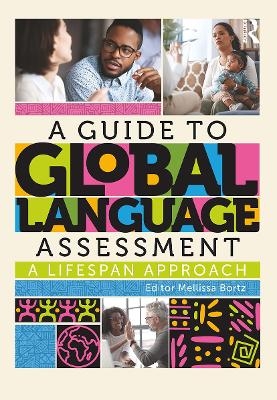
A Guide to Global Language Assessment
Routledge (Verlag)
978-1-032-95956-6 (ISBN)
- Noch nicht erschienen
- Versandkostenfrei
- Auch auf Rechnung
- Artikel merken
For decades, the speech-language therapy profession has expressed the need for the development of language assessment materials in languages other than English for children and adults. A Guide to Global Language Assessment: A Lifespan Approach aims to meet this need by providing comprehensive information about how to assess the language of bi- and multilingual and culturally diverse clients across the world.
Featuring the viewpoints of contributors from around the world, A Guide to Global Language Assessment also boasts a complete database of available global language assessments.
What’s included in A Guide to Global Language Assessment:
Case studies, assessment frameworks, and resources for conducting global language assessments for culturally and linguistically diverse populations
An array of language assessment methods across a continuum such as ethnographic and dynamic assessments, narratives, and standardized language assessment
Methods for developing local norms
A Guide to Global Language Assessment: A Lifespan Approach is an essential tool for empowering current and future speech-language therapists, professors, and researchers to address global language assessment across the lifespan.
Mellissa Bortz, PhD, CCC-SLP is an Assistant Professor in the Communication Science Disorders Department at St. John’s University in New York. Her guiding principles are global engagement as well as diversity, equity, inclusion, and accessibility for all. She teaches undergraduate, graduate, and global exchange courses. Her research focuses on the development of cultural and linguistic multilingual assessment materials. Currently, she is investigating the use of translanguaging in multilingual discourse analysis for children and adults. She also advocates for the expansion of these materials as well as developing repositories for these. She is originally from South Africa where she taught, mentored students, conducted research, and worked as a clinician.
Part I Background 1 Introduction 2 The International Classification of Functioning, Disability and Health Framework and Global Assessment 3 Language and Language Families Part II Methods of Assessment 4 Conducting Dynamic Assessments in Culturally and Linguistically Diverse Individuals 5 Ethnographic Assessment of Communication Disorders in Children 6 New Directions in Language Sample Analysis for Multilingual Contexts 7 Assessment of Narratives: A Global Perspective Part III Specific Examples of Global Assessments 8 Partnering to Develop a Community-Based Measure of Expressive Language in Guatemala 9 Drawing on Language Socialization Research to Improve Speech and Language Assessment 10 Identifying Developmental Communication Milestones in Western Kenya: A Community-Based Approach 11 Assessment of Creole Languages in the Absence of Norms: A Case Study on Guyanese Creole 12 The Development of Standardized Language Assessments and Screeners for Mandarin-Speaking Children in China: Lessons for Global Practice 13 The Use of Sentence Repetition Tasks for Culturally and Linguistically Diverse Clients Across the Lifespan Part IV Assessment of Language Disorders 14 Augmentative and Alternative Communication: It Is About Having a Voice 15 Addressing Multicultural and Multilingual Aspects in the Assessment of Individuals With Autism Spectrum Disorder Part V Adult Language Assessment 16 Assessment in Aphasia: Global Perspectives 17 Neuropsychological Assessment in Dementia for Global Populations
| Erscheint lt. Verlag | 4.11.2024 |
|---|---|
| Verlagsort | London |
| Sprache | englisch |
| Maße | 178 x 254 mm |
| Gewicht | 910 g |
| Themenwelt | Sachbuch/Ratgeber ► Gesundheit / Leben / Psychologie |
| Medizin / Pharmazie ► Gesundheitsfachberufe ► Logopädie | |
| Medizin / Pharmazie ► Pflege | |
| ISBN-10 | 1-032-95956-8 / 1032959568 |
| ISBN-13 | 978-1-032-95956-6 / 9781032959566 |
| Zustand | Neuware |
| Informationen gemäß Produktsicherheitsverordnung (GPSR) | |
| Haben Sie eine Frage zum Produkt? |
aus dem Bereich


